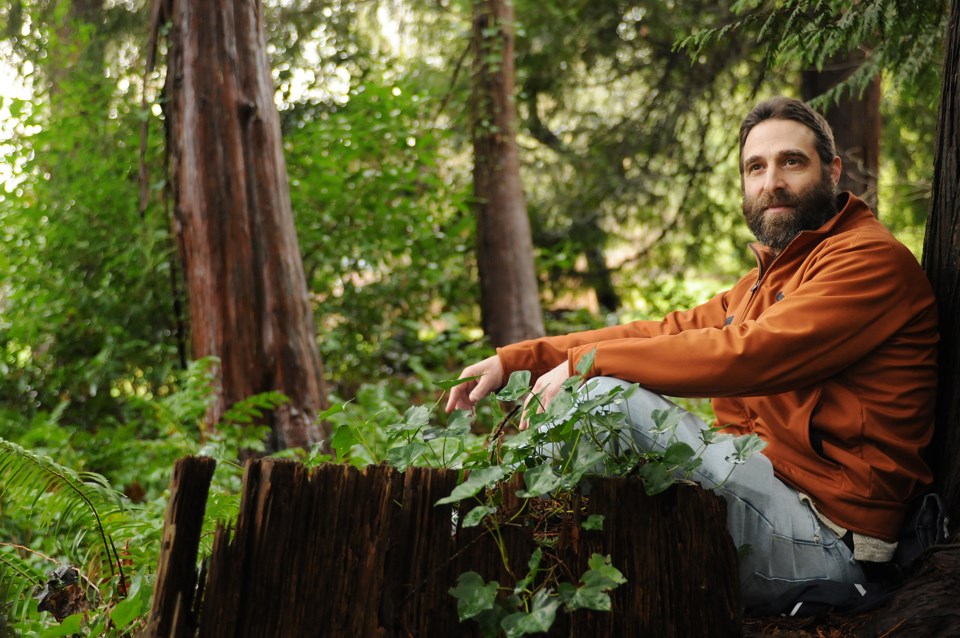There are a few reasons why British Columbians are the least religiously affiliated people in Canada, and among the least affiliated in the world. My theory is that a lot of people come here to escape their past — their roots, their relatives and their religion. There’s also the weather and the natural beauty of the great outdoors.
And here is not a coincidence, I think, but a confluence.
Studies of human responses to being outdoors mirror somewhat studies of the effect of religious observance on mental health and physical well-being. (One standout in the literature is that getting outdoors is seen to aid attention spans, something I’m not sure is the case with most church services.)
Could it be that some British Columbians are replacing formal religious observance with experiential interaction with creation?
British Columbians spend a lot of time outdoors. It is not rocket science to understand why. The weather is more permissive than elsewhere in Canada, the natural surroundings are attractive and people have come here specifically so they can hang out outside.
British Columbians certainly spend more Sundays in nature than in religious services. Instead of heading to church, we head for the Grouse Grind.
In another time and place, outsiders viewing the stream of people climbing that mountain would assume there was a majestic temple or bleeding tree at the top.
While health-conscious Wet Coasters are getting outdoors for their physical health, there is no doubt they are also benefiting from the spiritual well-being that comes from being in nature.
My friend Hart Banack has thought a lot about these issues. He’s a lecturer in the faculty of education at UBC and the chair of the steering committee for Wild About Vancouver Outdoor Education Festival.
The inaugural April event will feature opportunities for Vancouverites to get outdoors and will give businesses and non-profits that offer outdoor experiences a showcase to share their offerings. (I’m on a committee helping the festival in a very small way.)
For Banack, who was raised Jewish back east, the connection between spirit and the outdoors is patently obvious, if not easily articulated.
“It’s beyond words,” he says. “You’re just connected to this majesty of being that’s beyond words.”
Still, he likes to play with language to underscore the reality that we humans are animals and the outdoors is a natural place for us to be.
“There is a spirit that lives inside of us,” he says, noting the root of the word spirit is related to animus, which is related to breath, which animates.
Banack directed me to some interesting projects taking place in the city. The Vancouver park board is “Rewilding Vancouver,” aiming to protect things like coyote crossings, “and the other sounds, smells, and sights of wilder nature,” so that urban folks like us can still experience wild nature in its genuine forms.
The park board is also doing interesting things with fieldhouses throughout the city. These buildings, many of which were caretakers’ residences or used for team equipment storage, are being reimagined for educational opportunities that allow Vancouverites to better understand the world around us.
But Banack shuts down my analogy between churches and fieldhouses as places where we go to understand the world around us.
The problem with my (stretched) comparison is that the outdoors are not replacing the constructed space of churches, he suggests. It is the churches that tried to bring indoors what had far earlier been nature-based theology.
All the ancient religions centred on what was happening in the natural world.
“It’s connected to the outdoors, like the star patterns or when this [event] happens in the heavens — this is all outdoors,” he says. “The church came later. The church was built after. The first connections were in nature. The ancient stories and religions, they’re all outdoors.”
And yet, while some British Columbians may be swapping sacred spaces for ski hills and pews for playing fields, plenty are combining the two.
Banack also happens to be a past-president of the B.C. Camping Association. Of the member-camps in the organization, Banack estimates 85 to 90 percent are faith-based.
“Being outdoors is significantly considered valuable by these faith organizations,” he says.
With religious observance and hanging out in the outdoors both proven determinants of good health and mental well-being, these faith-based campers have got to be healthy, happy British Columbians.
pacificspiritpj@gmail.com
twitter.com/pat604johnson



